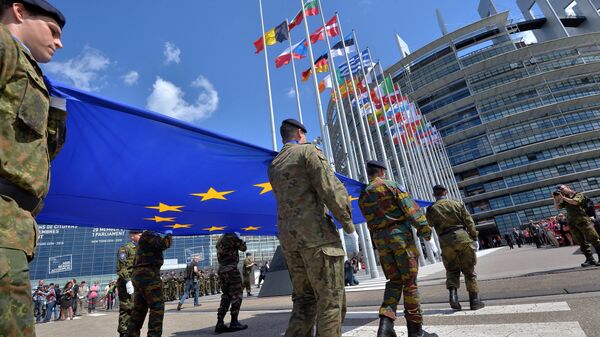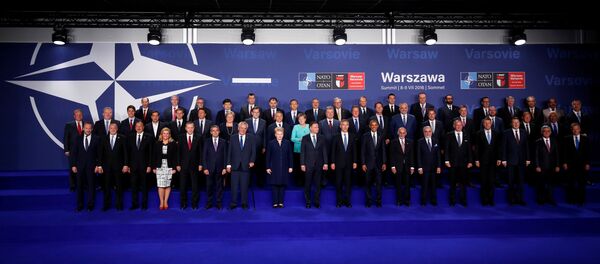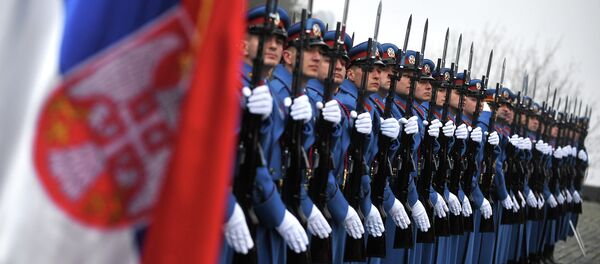On Tuesday, Vicente Dalmau, a spokesman for the Strasbourg-based Eurocorps, was cited as having said that Polish Defense Minister Antoni Macierewicz had officially informed his colleagues that Warsaw was planning to leave the multinational military organization by 2020 in order to redirect its resources to NATO.
“I see this as a fresh example of the chaos reigning in the government’s press service. I think it’s up to President Duda to clarify the situation. I also believe that here we have a clash between the concept where of the Polish armed forces becoming part of a European army, and one where we all take orders from Washington,” he told Sputnik Poland.
Warsaw’s surprise decision to pull out from the Eurocorps rapid reaction force apparently reflects the real attitude of the ruling Law and Justice party towards the European Union.
One of the country’s leading newspapers described the decision as “a step-by-step Polexit.”
Miroslaw Orzechowski said that he didn’t’ think that this could eventually result in Poland leaving the European Union though.
In a statement on Wednesday, the Polish defense ministry said that the decision to reduce the country’s participation in the European Corps was made in order to redirect resources to NATO and as a result of the increased pressure on the Polish Armed Forces due to its obligations within North Atlantic Alliance.
"The reduction of our participation in the Eurocorps will not have negative consequences on the Polish role in overall European security and defense policy. The released resources will be used to enhance the eastern NATO flank," the statement said.
Nine countries contribute to the Eurocorps, which has five outright members, namely France, Germany, Belgium, Spain and Luxembourg.
Poland joined the corps in 2002 as an associated nation with 120 Polish soldiers working in the corps’ headquarters and was set to become a permanent member in 2016.
Eurocorps participates in peacekeeping operations and is tasked with ensuring regional security. The organization may also be used to fulfill the defense needs of the European Union, NATO, and the United Nations and the Organization for Security and Cooperation in Europe (OSCE).
Never miss a story again — sign up to our Telegram channel and we'll keep you up to speed!




